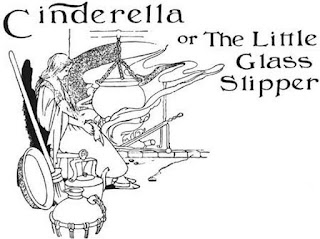Happy Prince
The Happy Prince and Other Tales
Written by Oscar Wilde, illustrated by Charles Robinson
When Oscar Wilde became a father, he wanted to offer his son a few good stories for children. Unfortunately, none of the books on the market suited Wilde's exquisite taste, so he decided to write a book of stories for kids himself.
His wife Costance very likely helped him at work, at least with the editing part (after all, she already had some experience with writing fairy tales) but we'll never know how much of her wit is in the five tales presented below.
(frontispiece)
This book is dedicated to Carlos Blacker. Oscar Wilde described him as 'always the truest of friends and most sympathetic of companions'.
We can instantly notice that all stories are pretty long. This is not usual for literature for children.
Oscar Wilde's The Happy Prince and Other Stories was first published in 1888 and already reprinted six times before we got the version from 1913, published by Duck Worth & Co from London, sometimes mentioned also as a 'special edition'. This is the one we'll use.All illustrations and decorations will be presented in the same order as in the book. This could very likely be done in a more organized and aesthetic way but we intend to provide everything done by Charles Robinson and with 'raw data' you can at least do what you want. Complete work is in the Public Domain anyway.
The Happy Prince
A swallow befriends a statue of the late prince who never experienced anything sad. Now, with his tall stature, he sees a lot of suffering and he wants to help at least a bit. He gives gold and precious stones from his body to the swallow. Their good actions have almost no impact and they both end in the garbage. From there they are taken to heaven.
The Selfish Giant
The Devoted Friend
This is a story about a poor gardener and a wealthy miller. The gardener is a nice but naive man who believes that the miller is his friend but is constantly exploited by him. He gives him a broken wheelbarrow and wants countless favors in return. The situation goes so far that the gardener loses his tools, his garden, and eventually his life. At his funeral, the miller concludes that his generosity only caused trouble so he won't be nervous anymore.






































































































Komentarji
Objavite komentar